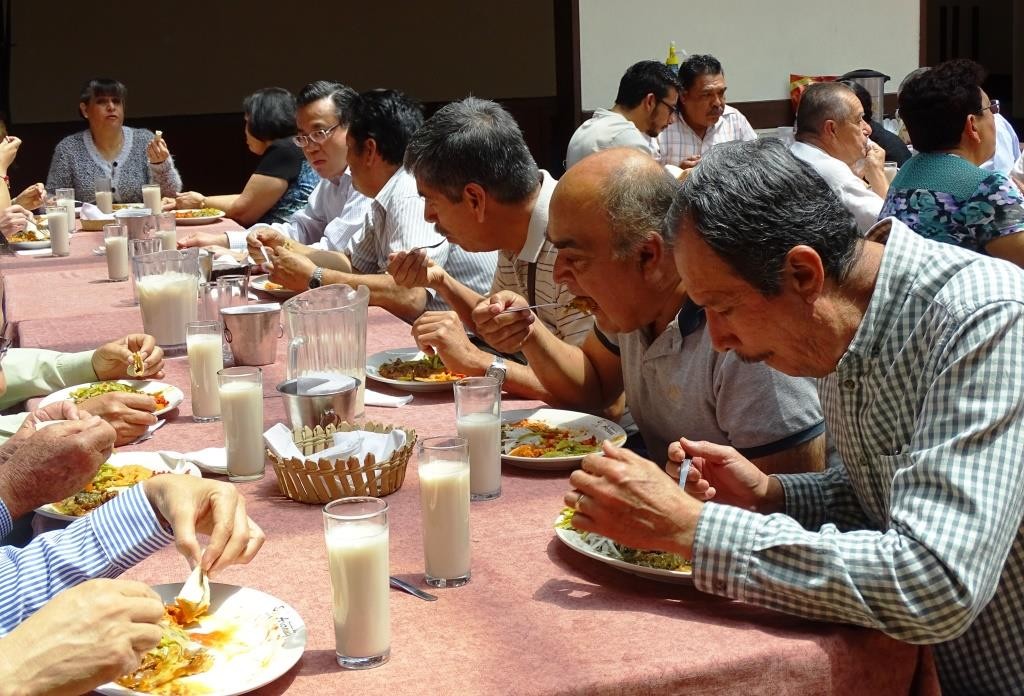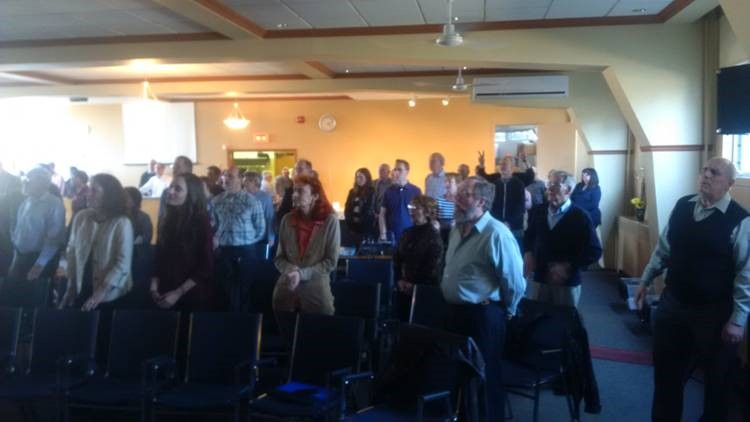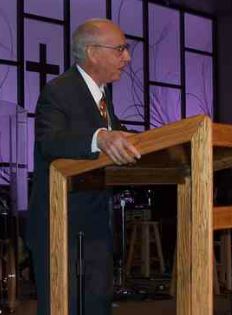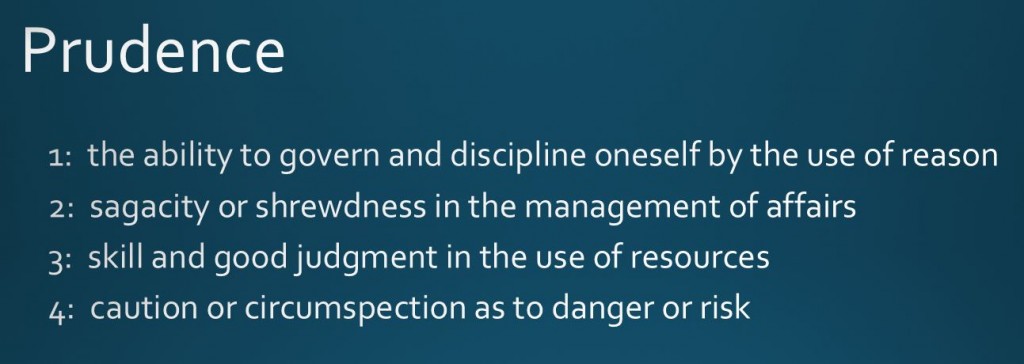Dear Brothers and Sisters,
 Do you agree that the media seems to be reaching new lows of obnoxiousness? Reality TV shows, sitcoms, news programs (online, TV and radio), social media and political debates (see my letter last week)—they all seem to be growing increasingly annoying. And then there are the unscrupulous preachers promoting the prosperity gospel with false promises of health and wealth. In talking with a person who embraces this false gospel, I asked why the movement’s name-it-claim-it prayers have not brought an end to the world’s various crises: ISIS, Ebola, economic woes, etc. They replied that I was being annoying with my question. Well, I admit to being annoying at times, but my question was sincere.
Do you agree that the media seems to be reaching new lows of obnoxiousness? Reality TV shows, sitcoms, news programs (online, TV and radio), social media and political debates (see my letter last week)—they all seem to be growing increasingly annoying. And then there are the unscrupulous preachers promoting the prosperity gospel with false promises of health and wealth. In talking with a person who embraces this false gospel, I asked why the movement’s name-it-claim-it prayers have not brought an end to the world’s various crises: ISIS, Ebola, economic woes, etc. They replied that I was being annoying with my question. Well, I admit to being annoying at times, but my question was sincere.
Jesus, not prosperity, is the gospel
One of the times I truly am annoying (or so my wife Tammy says) is when I’m sick. Thankfully (for both Tammy and me) I rarely am. Part of the reason, no doubt, is that Tammy prays for my health. Prayer does have a positive effect, but the prosperity gospel falsely promises that if your faith is strong enough you’ll never get sick. It also falsely proclaims that if you are sick (or otherwise suffering), it is because your faith is lacking. Such ideas are a perversion of faith and of the true gospel of Jesus Christ.
A friend of mine told me about a tragedy that happened when he was quite young. He lost two sisters in an automobile accident. Imagine how his father felt when told by an advocate of the prosperity gospel that the two girls died because of his lack of faith! Such mean-spirited and wrong-headed thinking ignores the reality of Jesus Christ and his grace. Jesus is the gospel—he is the truth that sets us free. In contrast, the prosperity gospel sets up a contractual relationship with God that, through our actions, seeks to condition God to bless us. It also promotes the lies that the aim of life here and now is to avoid suffering, and that God’s intention is to maximize our pleasure.

With Jesus in suffering
Throughout the New Testament, God calls his people to share with Jesus in both his joy and suffering. The suffering we’re talking about here is not the kind that results from foolish mistakes and poor choices, or from being a victim of circumstances, or from a lack of faith. The suffering Jesus experienced and which we are called to face in this fallen world is a matter of the heart. Yes, Jesus suffered physically as attested by the Scriptures, but the voluntary suffering he endured was largely the result of his compassionate love for people. Notice a few Scriptures that show his costly compassion:
- When he saw the crowds, he had compassion on them, because they were harassed and helpless, like sheep without a shepherd. (Matthew 9:36)
- “Jerusalem, Jerusalem, you who kill the prophets and stone those sent to you, how often I have longed to gather your children together, as a hen gathers her chicks under her wings, and you were not willing.” (Matthew 23:37)
- “Come to me, all who are weary and burdened, and I will give you rest. Take my yoke upon you and learn from me, for I am gentle and humble in heart, and you will find rest for your souls. For my yoke is easy and my burden is light.” (Matthew 11:28-30)
- When he approached Jerusalem, he saw the city and wept over it, saying, “If you had known in this day, even you, the things which make for peace! But now they have been hidden from your eyes.” (Luke 19:41-42 NASB)
- Jesus wept [following the death of his friend Lazarus]. (John 11:35)
Sharing in Jesus’ compassionate love for people often brings suffering, a suffering that sometimes is intense. To avoid all such suffering would mean avoiding loving others with Christ’s love. Such an aim would turn us into self-centered pleasure-seekers. And that is just what much of secular society brazenly promotes: Indulge yourself—you deserve it! The prosperity gospel adds to this unfortunate idea a mechanism falsely labeled faith—seeking to condition God into helping us achieve our hedonistic desires. The tragic, false teaching that we can avoid all suffering by rebuking it in Jesus’ name flies in the face of what the author of Hebrews says about the heroes of faith (Hebrews 11:37-38): These men and women were stoned, sawn asunder and killed by the sword. They went about in animal skins—destitute, afflicted and mistreated. And Hebrews declares not that they lacked faith, but that they were believers with great faith—people the world is not worthy of. Despite suffering greatly, they remained in word and deed faithful witnesses to God and his faithfulness.
Following in Jesus’ steps
Jesus, on the night prior to his greatest suffering (prolonged torture followed by crucifixion), said this to his disciples: “I have given you an example, that you also should do just as I have done to you” (John 13:15 ESV). Taking Jesus at his word, one of those disciples, Peter, later wrote this: “To this you have been called, because Christ also suffered for you, leaving you an example, so that you might follow in his steps” (1 Peter 2:21 ESV). But what does it mean to follow in Jesus’ steps? We must be careful here—Peter’s admonition is often too narrowly applied, leaving out, for instance, following Jesus in suffering (which Peter specifically mentions). On the other hand, the admonition is often too broadly applied. We are not called to mimic every aspect of Jesus’ life. Since we are not first-century Palestinian Jews (as was Jesus), we need not not wear sandals, robes and phylacteries in order to follow Jesus. Also (as the context of Peter’s admonition indicates) we understand that Jesus, as the Son of God, was and is unique. The wind, waves, demons, illness, bread and fish all obeyed his command as he performed stunning miracles that testified to his identity as the promised Messiah. Though we are his followers, he doesn’t normally give us that ability.
Yes, Peter does call on us to follow Jesus in suffering. In 1 Peter 2:18-25, he explained to a group of Christians who were slaves how, as followers of Jesus, they were to respond to the unjust treatment they were receiving. In doing so, Peter holds up Jesus as their example. He makes his point by quoting from the suffering servant passage in Isaiah 53 (see 1 Peter 2:22, 24, 25). Being sent by the love of God for the redemption of the world meant that Jesus would suffer wrongfully. He was innocent and remained innocent in his response to unjust suffering. He did not retaliate with threats and violence. As Isaiah says, “No deceit [guile] was found in his mouth.”
Suffering for the sake of loving others
Jesus suffered greatly, but he certainly did not lack faith. Quite the opposite. Out of compassion he came to earth—the Son of God become human. Out of faith in God and compassion for those he came to save, Jesus endured unjust suffering and refused to inflict suffering even on those who cruelly and unjustly tortured him. Such was his love and his faith. When we follow Jesus in suffering for the sake of loving others, we find a measure of relief and comfort knowing that doing so is an essential part of our calling. Note these two verses:
- Many are the afflictions of the righteous, but the Lord delivers him out of them all. (Psalm 34:19 ESV)
- Everyone who wants to live a godly life in Christ Jesus will be persecuted. (2 Timothy 3:12)
When we see others suffering, we are filled with compassion toward them. When our love and God’s grace are rejected, we are grieved. Though such love is costly in that it brings on our suffering, we do not run from it—we do not cease to love others as God loves them. To suffer in order to love is to be a faithful witnesses to Christ. In that way, we follow his example—we walk in his steps.
With Jesus in joy
As we walk in step with Jesus, we will be participating with him in compassionately loving all people. Doing so will often mean sharing in his suffering. However—and this is a paradox—it also will often mean sharing in his joy—his joy that all humanity, in him, is redeemed, forgiven and included in his transforming love and life. Thus to follow Jesus is to actively and deliberately share in both Jesus’ suffering and joy. That is the nature of the Spirit-led, gospel-shaped life. We must not fall for a false gospel that promises all joy and no suffering. Sharing in both is part of our calling and essential to our fellowship and communion with our compassionate Lord and Savior.
Suffering but joyful too,
Joseph Tkach



















 GCI Generations Ministries (GenMin) is hosting the Converge West event in Encino, California, on April 15-17 (
GCI Generations Ministries (GenMin) is hosting the Converge West event in Encino, California, on April 15-17 (
 In an article on the GCI website, GCI president Joseph Tkach addresses our shared mission and vision as churches journeying together by the Spirit in Grace Communion International. The article begins with this statement:
In an article on the GCI website, GCI president Joseph Tkach addresses our shared mission and vision as churches journeying together by the Spirit in Grace Communion International. The article begins with this statement: